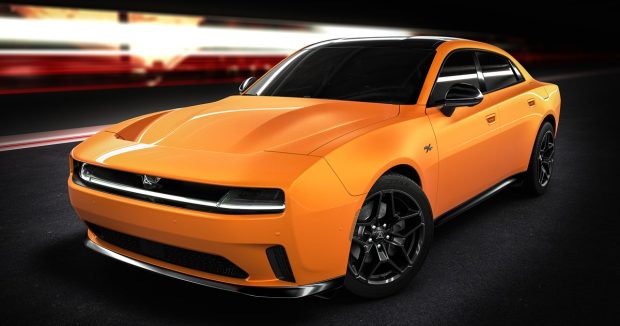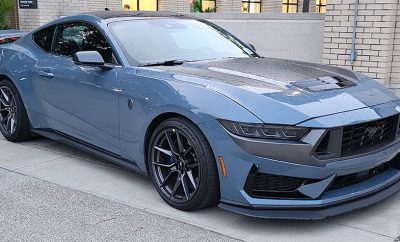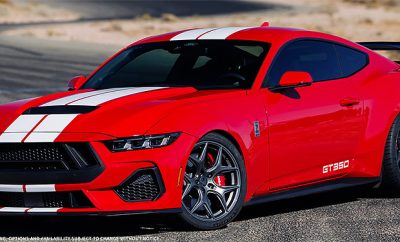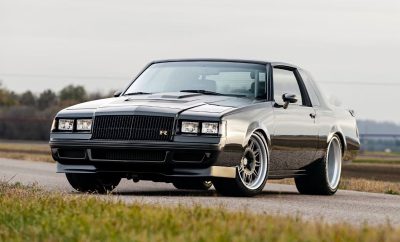Best Muscle Cars
The Future of Muscle Cars: A Look Ahead

Muscle cars as a breed are probably the longest standing group of vehicles around. The golden era of the late 1960s to early 1970s saw many different makes and models. Then a slump from the mid. 70s to 90s. Fast forward, and today we are at a weird crossroads where electric vehicles are seemingly taking over, but not without backlash. So, will the future follow the cycles of the past eventually bringing new exciting models or will traditional muscle cars be resigned to the classics of the past?
The Impact of Electric Vehicles on Traditional Muscle Cars
There are many reasons why electric vehicles have taken hold to the point of turning the hallowed Dodge Charger into an electric muscle car. The question now is whether muscle cars can retain their identity in a world increasingly dominated by electric powertrains.
EVs have a natural advantage with torque, which is delivered instantly. This could be a game-changer for muscle cars, known for their straight-line acceleration. Vehicles like the Tesla Model S Plaid have already shown that electric cars can outpace traditional muscle cars in a drag race, raising questions about what defines a “muscle car” in the electric era. However, EVs are more instant with their power, muscle cars keep getting faster. In other words, over an 8th mile race, a V8 would win. Over longer distances the V8 makes up ground.
Legacy automakers like Ford are embracing this evolution. The Mustang Mach-E, while not a direct successor to the classic Mustang, represents the brand’s first significant foray into electric performance. Although controversial among purists, it’s a sign that the muscle car as we know it is transforming. Dodge has the electric Charger, with muscle car like sounds, produced via clever speaker and exhaust systems.
Still, many enthusiasts fear that something vital will be lost in this transition: the visceral, sensory experience of a muscle car. The rumble of a V8 engine, the smell of gasoline, and the physical feedback of a high-displacement powertrain are hard to replicate with an electric vehicle. The challenge will be finding a way to merge the performance potential of electric drivetrains with the emotional appeal of traditional muscle cars.
Emerging Technologies in Performance and Design
As muscle cars evolve, so will the technology under the hood (or perhaps under the floor, where the batteries will go). Electric motors are just the tip of the iceberg. Advances in materials, aerodynamics, and software are set to redefine what muscle cars can do, both in terms of performance and design.
Battery technology is rapidly improving, with higher energy densities and faster charging times on the horizon. This will not only make electric muscle cars more viable but could also enhance their performance. Imagine a future where muscle cars have an electric range of 500 miles, can recharge in minutes, and offer performance stats that dwarf today’s gas-powered machines.
Beyond batteries, other technologies such as active aerodynamics and adaptive suspension systems are becoming more common in high-performance vehicles. These systems allow for real-time adjustments to optimize performance, stability, and efficiency depending on driving conditions. This tech could give muscle cars better handling and top speed, moving beyond their traditional role as straight-line dragsters.
Autonomous driving features, while still controversial in the performance car world, will likely make their way into future muscle cars as well. While no one expects a muscle car to be fully autonomous, advanced driver-assistance systems (ADAS) that enhance safety without diminishing the driving experience could become standard.
Consumer Trends and Preferences in the Muscle Car Market
The demographics of muscle car buyers are changing. While baby boomers and Gen Xers grew up idolizing the classic American muscle car, younger generations are more inclined towards technology, sustainability, and practicality. This shift in consumer preferences is pushing automakers to rethink what a muscle car can be.
Millennials and Gen Z buyers, in particular, are more open to electric vehicles, viewing them as the future of transportation. For them, an electric muscle car might not seem like a sacrilege but rather an exciting evolution. Automakers like Dodge and Chevrolet are likely to focus on this demographic as they roll out future electric and hybrid models, balancing the nostalgia for traditional muscle cars with the realities of the modern marketplace.
Customization and personalization will also play a larger role in the future muscle car market. Today’s consumers expect their vehicles to reflect their unique tastes, and manufacturers will need to offer a wide range of options, from performance upgrades to aesthetic tweaks. Just as the generation before wanted more power and speed, electric may bring these levels of performance to muscle cars.
Anticipated Regulatory Changes and Their Effects
The future of muscle cars will also be shaped by regulatory pressures, especially those surrounding emissions and fuel efficiency. Governments worldwide are implementing stricter emissions standards and even proposing bans on internal combustion engines (ICEs) in the coming decades. For muscle cars, which have traditionally prioritized power over efficiency, this presents a significant challenge.
In the U.S., the Biden administration has reintroduced aggressive emissions regulations, and California has announced plans to phase out the sale of new gas-powered vehicles by 2035. In Europe, similar moves are afoot, with several countries planning to ban ICE vehicles within the next two decades.
These regulations will inevitably push automakers towards electrification, as they seek to meet the new standards while maintaining the performance credentials of their muscle car lines. We can expect a surge in hybrid and fully electric muscle cars as manufacturers work to comply with these regulations while continuing to deliver the power and speed that muscle car enthusiasts crave.
However, the classic muscle car market is still very strong. Old classics are now seen as investment pieces. Restomods – taking an old car body, then replacing everything with new components is a best of both worlds scenario. Remember, there is nothing wrong with a Sunday driver.
The Potential for Hybrid Models and Performance Enhancements
One area where muscle cars may find a middle ground is in hybrid technology. Hybrid muscle cars could combine the best of both worlds, retaining the sound and feel of a gasoline engine while benefiting from the instant torque and efficiency of an electric motor.
Several automakers are already exploring this space. For instance, Ford’s rumored hybrid Mustang could offer enhanced performance by using an electric motor to provide additional torque during acceleration, all while improving fuel efficiency. This approach allows for the retention of the internal combustion engine, at least for now, while still aligning with modern performance standards and regulatory demands.
Hybridization could also open the door to new performance enhancements. By pairing electric motors with advanced software and aerodynamic features, future muscle cars could achieve unprecedented levels of speed, acceleration, and handling.
While the hybrid solution sounds ideal on paper, its also a halfway house, not providing the very best of each world. A hybrid vehicle is not a roaring V8 with supercharger wine or the 0-60 MPH in 3 seconds instant torque of the best EVs. But, we can only really decide the worth of muscle car hybrids once they hit our roads.
A New Era for Muscle Cars
The long standing V8 engine and muscle cars in general are not going away anytime soon. Used muscle cars are still available to buy and drive freely. Brand new V8 muscle cars maybe thin on the ground, like the Dodo hanging on for dear life, but if the past is anything to learn from, muscle cars are just waiting in the wings for when the time is right to re-emerge.









0 comments